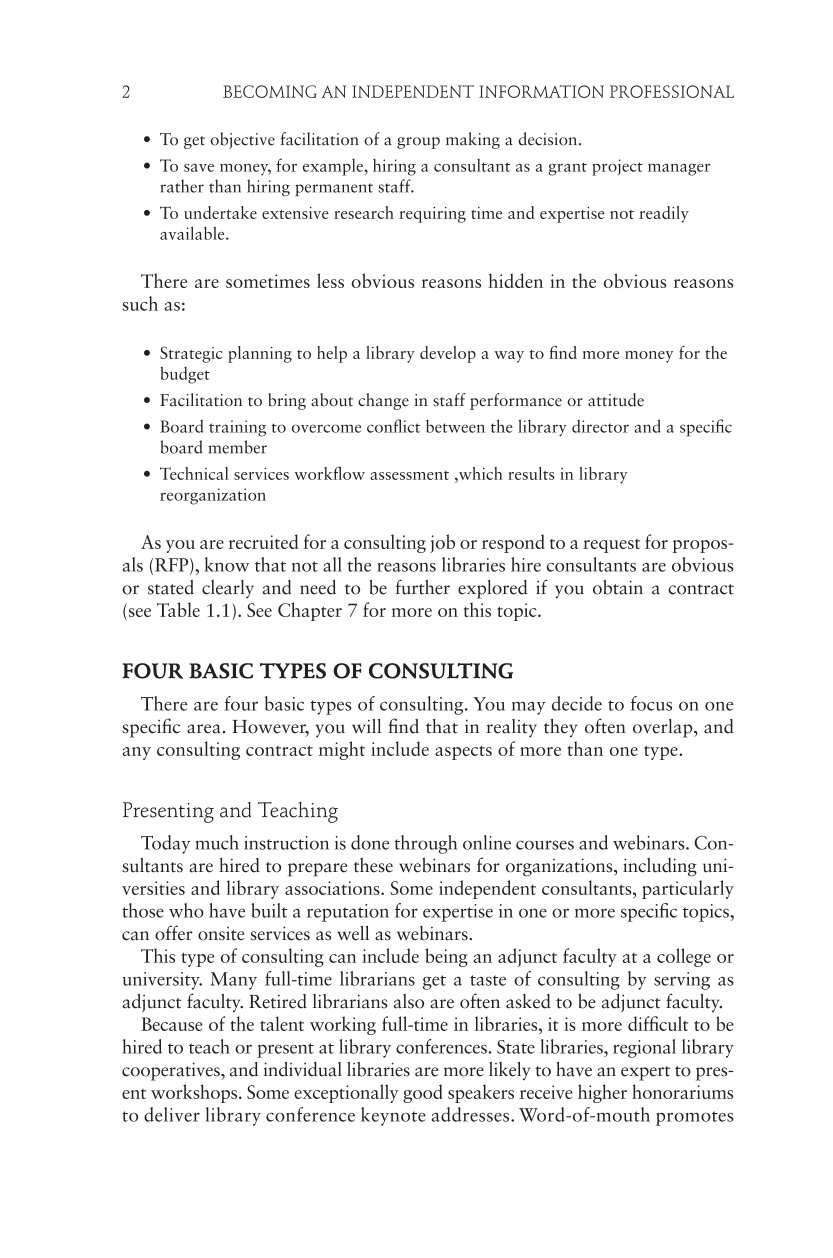2 BECOMING AN INDEPENDENT INFORMATION PROFESSIONAL
• To get objective facilitation of a group making a decision.
• To save money, for example, hiring a consultant as a grant project man ag er
rather than hiring permanent staff.
• To undertake extensive research requiring time and expertise not readily
available.
There are sometimes less obvious reasons hidden in the obvious reasons
such as:
• Strategic planning to help a library develop a way to find more money for the
budget
• Facilitation to bring about change in staff performance or attitude
• Board training to overcome conflict between the library director and a specific
board member
• Technical services workflow assessment ,which results in library
reorganization
As you are recruited for a consulting job or respond to a request for propos-
als (RFP), know that not all the reasons libraries hire consultants are obvious
or stated clearly and need to be further explored if you obtain a contract
(see Table 1.1). See Chapter 7 for more on this topic.
FOUR BASIC TYPES OF CONSULTING
There are four basic types of consulting. You may decide to focus on one
specific area. However, you will find that in reality they often overlap, and
any consulting contract might include aspects of more than one type.
Presenting and Teaching
Today much instruction is done through online courses and webinars. Con
sultants are hired to prepare these webinars for organizations, including uni-
versities and library associations. Some in de pendent consultants, particularly
those who have built a reputation for expertise in one or more specific topics,
can offer onsite services as well as webinars.
This type of consulting can include being an adjunct faculty at a college or
university. Many full-time librarians get a taste of consulting by serving as
adjunct faculty. Retired librarians also are often asked to be adjunct faculty.
Because of the talent working full-time in libraries, it is more difficult to be
hired to teach or present at library conferences. State libraries, regional library
cooperatives, and individual libraries are more likely to have an expert to pres
ent workshops. Some exceptionally good speakers receive higher honorariums
to deliver library conference keynote addresses. Word-of-mouth promotes

















































































































































































